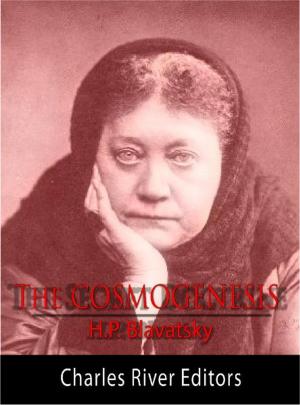Official Records of the Union and Confederate Armies: Edward Porter Alexanders Account of the Gettysburg Campaign
Nonfiction, History, Americas, United States, Civil War Period (1850-1877), 19th Century, Military| Author: | Edward Porter Alexander | ISBN: | 9781619824898 |
| Publisher: | Charles River Editors | Publication: | February 15, 2012 |
| Imprint: | Language: | English |
| Author: | Edward Porter Alexander |
| ISBN: | 9781619824898 |
| Publisher: | Charles River Editors |
| Publication: | February 15, 2012 |
| Imprint: | |
| Language: | English |
In the narrative of the Civil War, Edward Porter Alexander has loomed larger in death than in life. Just 25 years old when the war broke out, Porter Alexander had already served as an engineer and officer in the U.S. Army, but the native Georgian resigned his commission in May 1861 and joined the Confederacy after his home state seceded. Porter Alexander spent 1861 as an intelligence officer, and he served as part of a signal guard, but he soon became chief of ordnance for Joseph Johnstons army near Richmond. Half a year later, Johnston would be injured during the Peninsula Campaign at the Battle of Seven Pines, after which he was replaced by Robert E. Lee. Over the course of 1862, Porter Alexander took on more roles in the Army of Northern Virginias artillery branch, particularly under Longstreets 1st Corps. Though he participated in several battles, Porter Alexander played his biggest role at the Battle of Gettysburg. On the third day, Lee decided to make a thrust at the center of the Unions line with about 15,000 men spread out over three divisions. Though it is now known as Picketts Charge, named after division commander George Pickett, the assignment for the charge was given to Longstreet, whose 1st Corps included Picketts division. Longstreet had serious misgivings about Lees plan and tried futilely to talk him out of it. Lees decision necessitated a heavy artillery bombardment of the Union line and attempting to knock out the Unions own artillery before beginning the charge that would cover nearly a mile of open space from Seminary Ridge to the Union line on Cemetery Ridge. Lee tasked Porter Alexander, in charge of the 1st Corps guns, to conduct the artillery bombardment. What resulted was the largest sustained bombardment of the Civil War, with over 150 Confederate cannons across the line firing incessantly at the Union line for nearly 2 hours. Unfortunately for Porter Alexander and the Confederates, the sheer number of cannons belched so much smoke that they had trouble gauging how effective the shells were. As it turned out, most of the artillery was overshooting the target, landing in the rear of the Union line. Reluctant to order the charge, Longstreet commanded Porter Alexander to order the timing for the charge. As Longstreet and Alexander anticipated, the charge was an utter disaster, incurring a nearly 50% casualty rate and failing to break the Union line. Porter Alexander would later write at length about Gettysburg in his memoirs and in letters to the Southern Historical Society, providing his analysis and opinions. In particular, he was critical of General Lee for ordering Picketts Charge, calling it Lees worst decision of the war. Porter Alexander also wrote an official account of the Gettysburg Campaign that was preserved in The War of the Rebellion: Official Records of the Union and Confederate Armies. That account, not surprisingly, was far more subdued. This edition of Porter Alexanders official account includes pictures of the important commanders of the battle.
In the narrative of the Civil War, Edward Porter Alexander has loomed larger in death than in life. Just 25 years old when the war broke out, Porter Alexander had already served as an engineer and officer in the U.S. Army, but the native Georgian resigned his commission in May 1861 and joined the Confederacy after his home state seceded. Porter Alexander spent 1861 as an intelligence officer, and he served as part of a signal guard, but he soon became chief of ordnance for Joseph Johnstons army near Richmond. Half a year later, Johnston would be injured during the Peninsula Campaign at the Battle of Seven Pines, after which he was replaced by Robert E. Lee. Over the course of 1862, Porter Alexander took on more roles in the Army of Northern Virginias artillery branch, particularly under Longstreets 1st Corps. Though he participated in several battles, Porter Alexander played his biggest role at the Battle of Gettysburg. On the third day, Lee decided to make a thrust at the center of the Unions line with about 15,000 men spread out over three divisions. Though it is now known as Picketts Charge, named after division commander George Pickett, the assignment for the charge was given to Longstreet, whose 1st Corps included Picketts division. Longstreet had serious misgivings about Lees plan and tried futilely to talk him out of it. Lees decision necessitated a heavy artillery bombardment of the Union line and attempting to knock out the Unions own artillery before beginning the charge that would cover nearly a mile of open space from Seminary Ridge to the Union line on Cemetery Ridge. Lee tasked Porter Alexander, in charge of the 1st Corps guns, to conduct the artillery bombardment. What resulted was the largest sustained bombardment of the Civil War, with over 150 Confederate cannons across the line firing incessantly at the Union line for nearly 2 hours. Unfortunately for Porter Alexander and the Confederates, the sheer number of cannons belched so much smoke that they had trouble gauging how effective the shells were. As it turned out, most of the artillery was overshooting the target, landing in the rear of the Union line. Reluctant to order the charge, Longstreet commanded Porter Alexander to order the timing for the charge. As Longstreet and Alexander anticipated, the charge was an utter disaster, incurring a nearly 50% casualty rate and failing to break the Union line. Porter Alexander would later write at length about Gettysburg in his memoirs and in letters to the Southern Historical Society, providing his analysis and opinions. In particular, he was critical of General Lee for ordering Picketts Charge, calling it Lees worst decision of the war. Porter Alexander also wrote an official account of the Gettysburg Campaign that was preserved in The War of the Rebellion: Official Records of the Union and Confederate Armies. That account, not surprisingly, was far more subdued. This edition of Porter Alexanders official account includes pictures of the important commanders of the battle.















